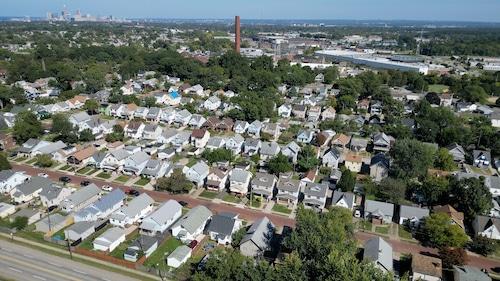
- Updated: Dec. 24, 2024, 12:11 a.m.
Thousands of landlords ignoring code violations in Cleveland could get hit with a new $200 fine in early 2025.
By Sean McDonnell, cleveland.com
CLEVELAND, Ohio — Thousands of landlords ignoring code violations in Cleveland could be getting a special gift from the city’s inspectors to start 2025: a $200 fine.
The city’s Building and Housing department is preparing to use its new civil ticketing system, designed to financially punish property owners who break the rules. Director Sally Martin O’Toole told City Council members that the first order of business is to blanket issue fines to “everybody who has not registered a rental property but should have.”
Cleveland has long had a problem with landlords who are supposed to register rental units with the city, but don’t. City officials say the first round of tickets will include 4,000 to 6,000 properties.
“So, it’s going to be a bit of a shot across the bow,” Martin O’Toole told Council members during a November meeting. “We’ve been waiting for those civil tickets to launch to start becoming very aggressive in that enforcement.”
The civil fines are a new tool that city inspectors can use to force landlords to make repairs or to comply with Cleveland’s housing code. Inspectors can issue a $200 fine for each infraction, and they can issue new tickets daily if the problem isn’t addressed. If the fines aren’t paid, they can be assessed against the property owner’s tax bills.
Property owners can appeal the civil tickets.
The citations are just one facet of Mayor Justin Bibb’s “Residents First” overhaul.
The legislation passed in February included several blight-fighting tools, such as a requirement that out-of-town landlords designate a local agent who is responsible for a property, and point-of-sale inspections for vacant buildings that would require the new owner to fix some code violations.
Before civil tickets became an option, inspectors often had to rely on slow-going criminal filings to force owners to fix up properties.
Martin O’Toole told Council members that the old methods of enforcement included constant “tail-chasing.” She said civil tickets are the tool inspectors have been waiting for.
“We intend to launch them with a bang,” Martin O’Toole told council members.
The city was supposed to start writing tickets in November, but Martin O’Toole told cleveland.com that IT issues had delayed that plan.
City spokesmen Jorge Ramos Pantoja said inspectors now plan to start issuing tickets in the first few months of 2025, potentially in January. Inspectors will start with thousands of unregistered rental properties. The second phase will be unregistered vacant properties.
The tickets may generate up to $2 million in revenue each year for the city, Ramos Pantoja said.
It’s unclear how many rental properties there are in Cleveland, but research suggests there may be around 90,000, according to the city. There were 58,681 registered rentals in 2024, down from 64,519 in 2023.
The Building and Housing department also sent letters to thousands of unregistered landlords who came to the city’s attention through Cuyahoga Metropolitan Housing Authority data, Martin O’Toole told City Council in November. Thousands of vacant property owners were also sent letters from the housing department.
Martin O’Toole said inspectors will also venture into Cleveland neighborhoods to identify vacant properties, which are required to be registered under the city’s regulations.
City Council members welcomed the updates at the November meeting but questioned whether the Building and Housing department has enough inspectors to systematically go door-to-door in Cleveland to identify violations.
The department is budgeted for 166 employees in 2024 but had 25 vacancies as of November, including 12 unfilled inspector positions.
Ward 13 Councilman Kris Harsh emphasized the need for more inspectors, especially to make progress on Cleveland’s lead-safety goals. However, he acknowledged the challenge of advocating for additional positions when existing roles remain unfilled.
RECOMMENDED•cleveland.com
Harsh shared during the meeting that he’s been conducting his own property survey in his ward, covering just “seven of the 9,000 houses” so far. He said even that small effort, combined with sending letters to landlords, has already prompted property improvements, such as porch repairs and house painting.
“I’m proving to myself for everybody’s benefit, code enforcement works,” Harsh said. “It gets attention.”
Sean McDonnell is a reporter for cleveland.com and the Plain Dealer. You can reach him at smcdonnell@cleveland.com.


Comments